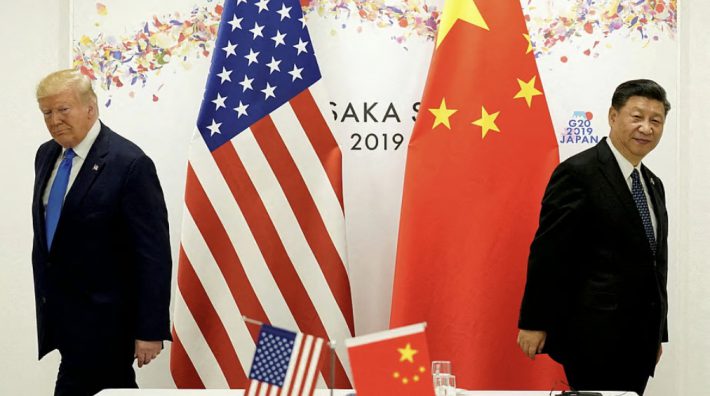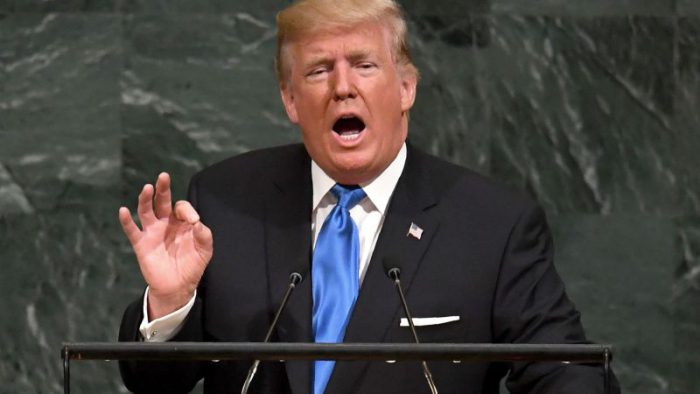Washington and Beijing prepare for high-stakes negotiations in Malaysia as President Trump seeks to ease tensions ahead of his meeting with Xi Jinping.
Washington, D.C. / Beijing — The United States and China are preparing to resume high-level trade negotiations next week, with U.S. Treasury Secretary Scott Bessent and Chinese Vice Premier He Lifeng tasked with defusing one of the most volatile trade standoffs in years.
Bessent confirmed Friday that he will hold a preliminary call with He later in the evening, followed by in-person meetings in Malaysia “probably a week from tomorrow,” aimed at laying the groundwork for a leaders’ summit between Presidents Donald Trump and Xi Jinping later this month.
“He and I, and a delegation, will meet in Malaysia — probably a week from tomorrow — to prepare for the two presidents to meet,” Bessent told reporters at a White House event, noting that the call with He was scheduled for 8:30 to 9:00 p.m. New York time.
Trump Signals Optimism
President Donald Trump struck a notably upbeat tone on Friday, suggesting that progress was within reach after weeks of escalating tariff threats.
“I think we’re doing very well. I think we’re getting along with China,” Trump said, expressing hope that the upcoming talks could yield an agreement to “defuse the crisis” that rattled global markets earlier this month.
The U.S. president confirmed that his planned meeting with Xi Jinping — slated to occur on the sidelines of the Asia-Pacific Economic Cooperation (APEC) Summit in South Korea — remains on schedule, describing it as a potential “reset moment” in the world’s most important bilateral relationship.
Backdrop: Escalation and Uncertainty
The renewed dialogue follows Trump’s announcement of sweeping 100% tariffs on all Chinese imports, alongside new export controls on U.S.-made critical software — measures that Beijing has denounced as “economic aggression.”
The sharp escalation triggered widespread concerns of a global supply chain disruption, especially in electronics, semiconductors, and automotive sectors.
Treasury Secretary Bessent, a central figure in Trump’s economic team, has been tasked with negotiating down the immediate escalation while maintaining pressure on Beijing over technology theft, industrial subsidies, and trade imbalances.
Malaysia: A Neutral Ground
Diplomatic sources described Malaysia as a strategic and neutral venue for the talks, offering both proximity and privacy ahead of the Trump–Xi summit. The agenda is expected to cover tariffs, market access, financial transparency, and national security-linked export controls, with both sides signaling a desire to avoid further economic damage.
Analysts note that while Washington’s rhetoric remains tough, Trump’s decision to pursue face-to-face diplomacy signals a tactical pause rather than retreat — allowing for potential breakthroughs while preserving leverage.
“Trump’s approach has always been deal-making under maximum pressure,” one U.S. official said. “This is an opening to stabilize markets — not surrender.”
Markets Watch Cautiously
Global investors are watching the developments closely. Wall Street rebounded earlier this week amid speculation that the White House might soften its stance ahead of the APEC meeting. A successful round of talks could cool inflationary pressures and reignite business confidence shaken by months of tariff threats and supply chain disruptions.
However, both sides remain divided over structural issues such as intellectual property protections, state-backed industries, and digital sovereignty.
The Road to South Korea
The Malaysia meeting will set the stage for Trump’s anticipated encounter with Xi Jinping, which could determine the trajectory of U.S.–China relations for the coming year.
If successful, it may yield a temporary tariff freeze and a joint framework for continued negotiations — a move that would signal Washington’s preference for managed competition over confrontation.
“We’re going to get this right,” Bessent said. “The world depends on it.”





